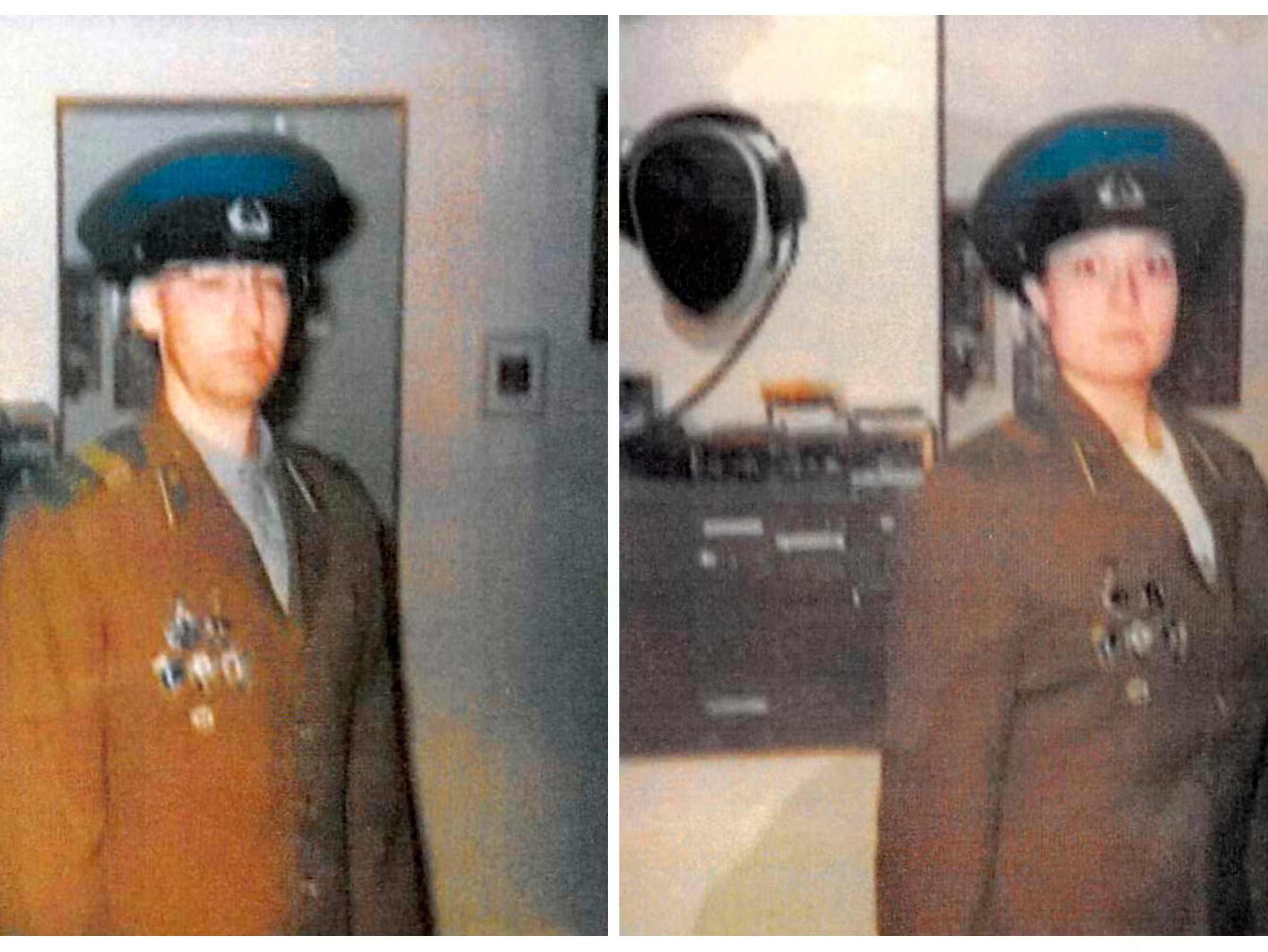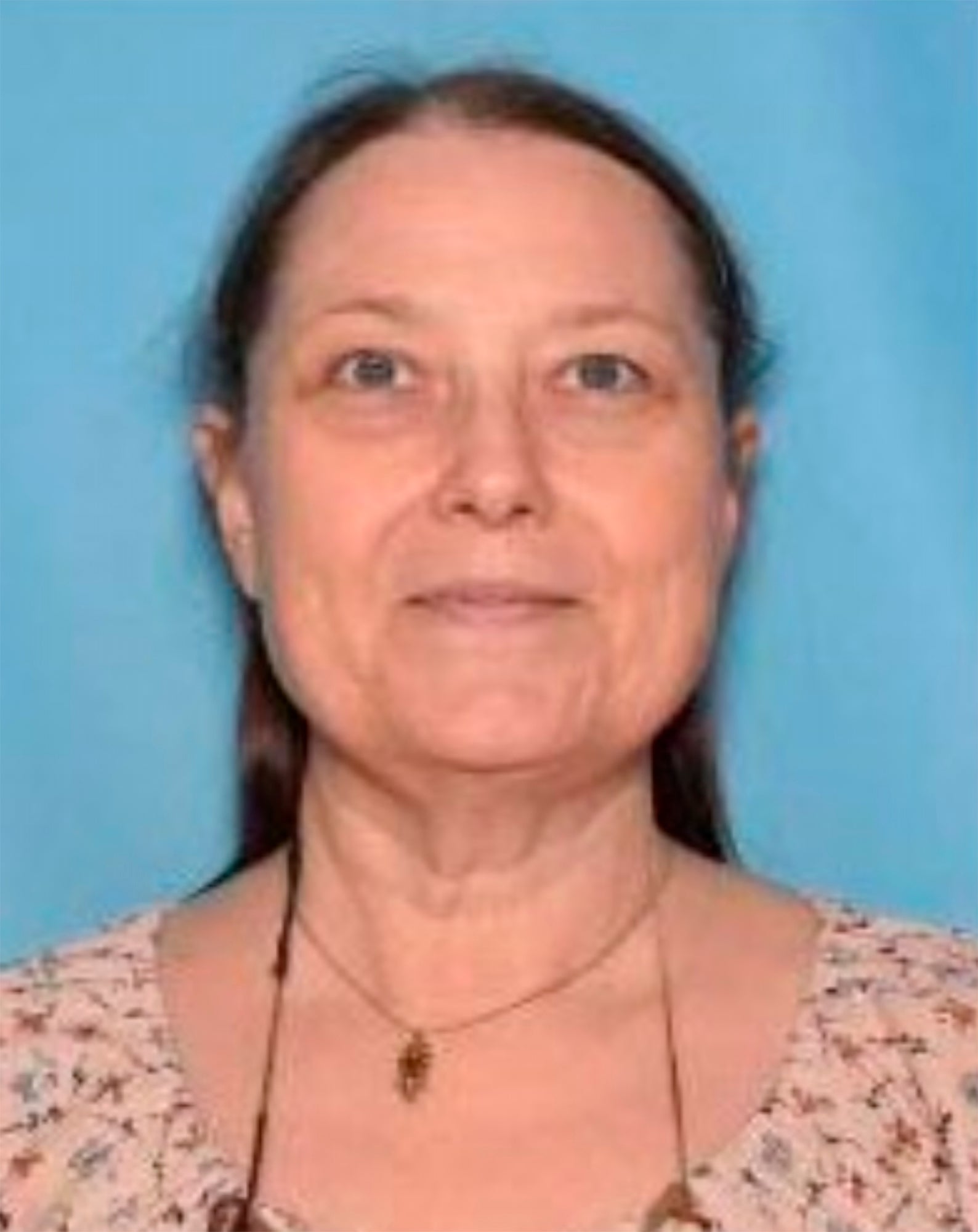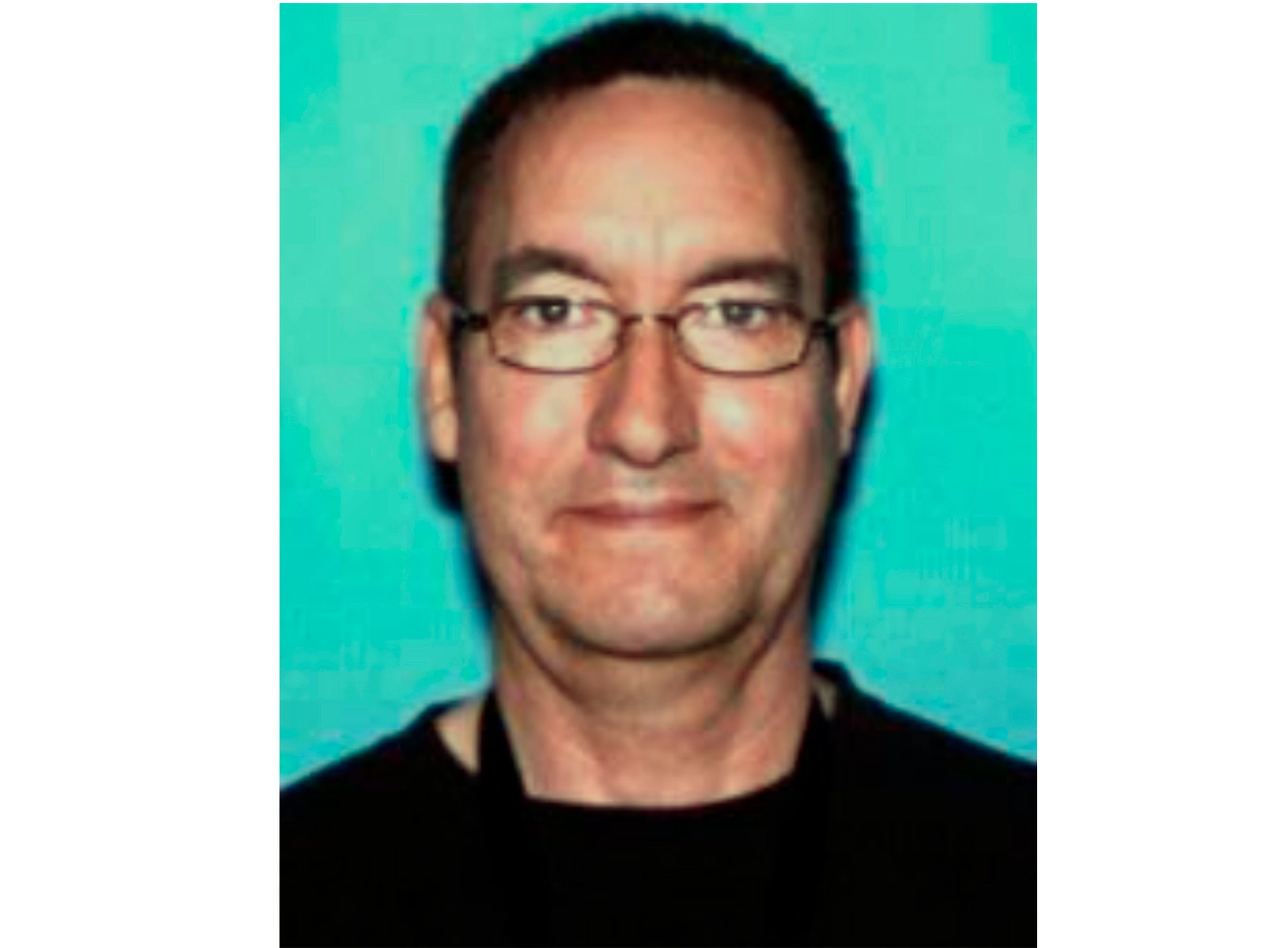Stolen identities and KGB uniforms: Hawaiian ‘spy’ lovers face court – but is it all that it seems?
Walter Glenn Primrose and Gwynn Darle Morrison, both 66, were indicted for conspiracy and identity theft, federal court documents show. Johanna Chisholm unravels the complicated case

Decades spent living under false identities. Multiple forged passports. Coded language scrawled across documents, which include maps of US military bases. And perhaps the most disconcerting, a pair of blurry-eyed Polaroids showing two people – who maintain to be US citizens – stoically donning what appear to be authentic KGB uniforms.
With those details alone, the case of Walter Glenn Primrose and Gwynn Darle Morrison – a Hawaiian couple who have been charged with conspiring to commit an offence against the US government – would seem to have all the necessary trappings for a John Le Carré spy novel.
But, as is almost always the case in the real world, sometimes the stories theorised in supposed espionage cases can begin to depart from the actual truth, as audiences become too rapt in the tantalising details rather than seeing the evidence for what it actually points to.
For Mr Primrose and Ms Morrison, that is exactly what their defence team is striving to prove after federal prosecutors jailed the couple in Kapolei last month over charges of identity theft, conspiracy to commit an offence against the US government and making false statements in the application and use of a passport and driver’s licence.
In Mr Primrose’s case, who was employed with the US Coast Guard for two decades and even obtained secret-level security clearance, those charges went one step further, as he was also accused of using a false identity on Defense Department credentials, a criminal complaint filed on 21 July shows.

The couple, who have been living under the stolen identities of two dead Texas babies for more than three decades, have both been denied bail by a US judge, with the husband’s ruling arriving last month and his wife’s this past Monday.
Though US District Judge Leslie Kobayashi acknowledged during her ruling that she wasn’t taking into consideration any “suspicions” raised about the pair’s reason for assuming the fake names for so many years, she conceded that she found herself still flummoxed by the mystery.
“Because the real question is, why?” said the judge, noting that the charges brought against the couple were the only evidence she relied on during her decision to deny bail.
For their part, the Hawaii-based couple have pleaded not guilty to conspiracy, false statements in a passport application and aggravated identity theft. Prosecutors, however, have contended that they suspect there is something more sinister afoot, hinting at something more akin to a George Smiley investigation than a simple case of stolen identity.
The case of Mr Primrose and Ms Morrison, both of whom are 66 years old, dates back as early as the 1980s, when the two, for reasons unclear or unproven yet, decided to take on the identity of two dead children.
For Mr Primrose, that meant taking on the identity of Bobby Edward Fort, a child who died in 1967 in Burnet, Texas, while his wife assumed the name of Julie Lyn Montague, who passed away at the same hospital in 1968.
According to the arresting documents, Ms Morrison and Mr Primrose were both born in 1955 and attended high school and college together in the Lone Star State. They married in their childhood hometown in 1980 and shortly thereafter is when their story begins to take a seemingly inexplicable turn.
After graduation, the high school sweethearts decided for reasons still unknown to the public to take on the names of two young children, Fort and Montague.

From 1987 onward, the couple would go on to remarry under their new names and use the assumed identities to register for driver’s licences, passports, job applications and, for Mr Primrose – then known as Mr Fort – apply and be granted secret clearance with the US government, which he held for six years.
“While he held that secret clearance with the U.S. Coast Guard, defendant Primrose was required to report any foreign travel,” prosecutors wrote in court documents filed in July.
The pair would reportedly go on to ask friends and family to only refer to them by their new names, cushioning the strange ask by letting them know that it was solely for “legal and financial reasons”.
The only sliver of evidence that sheds light on a possible motive for the sudden change in name is that the same year the pair began going by their new aliases, they also lost their home in Nacogdoches to foreclosure.
Information about the pair is fleeting between then and when Mr Primrose joined the US Coast Guard in 1994, when he would’ve been about 39 years old. On his enlistment documents, he would’ve appeared under his fake identity of Mr Fort, who at that time would’ve been 27 years old – more than a decade younger than what he would’ve appeared in real life.
In 1999, Mr Primrose would even go so far as to apply for a separate passport under his legal name, while still holding one under his assumed name, Bobby Edward Fort.
From the time period of 1994 until 2016, Mr Primrose worked as an avionics technician with the US Coast Guard.

More recently, however, he had been working for an unnamed US defence contractor at the US Coast Guard Air station at Barbers Point that conducts search and rescue responses. It is during this time period that Mr Primrose obtained his secret security clearance under a fake identity, the Associated Press reported.
A spokesperson for the US Coast Guard confirmed that the military branch is working alongside other federal agencies in an investigation into the case, but could not provide any additional details to The Independent.
“The U.S. Coast Guard and its investigative service are working with the Federal Bureau of Investigations and Department of State to conduct a comprehensive investigation of Walter Glenn Primrose,” a spokesperson for the US Coast Guard said in an email last month. “The Coast Guard cannot release details about the case in order to uphold the integrity of the investigation.”
The pair maintained while under questioning that they abruptly left their Texas home more than 40 years ago and assumed the new identities due to financial trouble and dodging legal troubles.
But Assistant US Attorney Wayne Myers said, according to court documents released in July, that he and federal prosecutors believe that there is potentially something bigger at play than a cut-and-paste job of white-collar crime.
“We think the defendant is obviously quite adept at impersonating other people, obtaining government ID documents, fraud, avoiding detection,” Mr Myers said.

In sum, Mr Primrose has obtained five passports under his fake identity while his wife has procured three. “He may – we’re not saying for sure – but he may have some troubling foreign connections. And if he does, he might be able to use those to enlist help.”
Outside of the fake identities, prosecutors unearthed more pieces of evidence that would seem to support their theory that the pair could potentially be involved in some form of foreign espionage when they searched their Oahu home earlier this summer.
In that raid, the agents reportedly obtained an invisible ink set, documents with coded language and maps showing military bases, the affidavit said.
But perhaps the most confounding piece uncovered in the search was a pair of undated Polaroids – that an expert later traced to be from the 1980s – that show the couple dressed in what appears to be uniforms for the KGB, the main security agency for the former Soviet Union.
The defence attorneys representing the couple have maintained that the decades-old photographs are merely a representation of the pair partaking in harmless “cosplay”. The uniforms in question, Assistant Federal Defender Max Mizono, who represents Mr Primrose, continued, were not even in their possession, but were instead turned over by someone else.
“Mr. Primrose’s lack of ownership and possession of the alleged KGB uniform even more strongly supports the inference that he and his co-defendant, are not, in fact, Russian spies, and that the photographs of them are more akin to dressing up in a costume, engaging in cosplay, or the like,” Mr Mizono wrote in a motion, according to the Associated Press.
The invisible ink uncovered at the family home were also explained away by the defence as being a “toy purchased many years ago for entertainment,” while the other pieces of evidence cited by the federal prosecutors were deemed innocuous.
For Ms Morrison, her attorney similarly has argued that the entire affair has been dubiously “blown out of proportion” and stands as an example of “government overreach”.
“She wants everyone to know she’s not a spy,” said attorney Megan Kau in an interview with the Associated Press, highlighting that the couple, who are both US citizens, have lived in the country for the past three decades as law abiding citizens.
The case, though largely built around the decades the pair engaged in alleged identity fraud on multiple official documents, is suspected by external parties to be part of something more suspect.
Tom Simon, a retired FBI agent, told Hawaii News Now that the government had likely been following the couple for quite some time and that more evidence will come out in the wash as the case moves forward in federal court.
“The FBI counter-intelligence agents are very smart and very thorough,” he told the station. “They’re not going to make a case with this impact based on someone playing dress-up at a party.”
Some of the theories that have been alluded to since papers for the couple were filed with a federal court include one where prosecutors claim the existence of a piece of correspondence found inside their home, where an associate believed the husband had either joined the CIA or had become a Bolivian terrorist.
At one point, Mr Primrose had told a close friend that he was a government agent and therefore wasn’t permitted to be photographed.
As for Ms Morrison, Assistant US Attorney Thomas Muehleck said in court papers that he’d been told by a “close associate” that she had lived in Romania while it was a Soviet bloc country. And at one point, the woman opened a post office box under her real name after she’d assumed her fake identity so that she could maintain contact with her family. But when her father passed away, the rest of her loved ones lost contact with Ms Morrison and even went to the extent of tapping local law enforcement to assist in tracking her down.
“Even the defendant’s family cannot find him when they need to,” Mr Myers said.
Those theories, however, hold no water with the defence.
“Stated otherwise, it is simply not feasible that Mr. Primrose is a member of the CIA, a Bolivian terrorist, and a Russian spy, all the while working at both the U.S. Coast Guard and a private employer and living a relatively low-key lifestyle in Kapolei for the last twenty years,” Mr Mizono said during the bail hearing Monday. “In sum, the government should put its money where its mouth is, submit all this evidence to the Court, and let the Court ascertain the veracity behind its claims that Mr. Primrose is a Russian spy.”
Adding an additional layer of intrigue to the mysterious case is a point raised by federal prosecutors in the opposing detention appeal, where they stated that while the pair was left alone in a holding room at FBI headquarters in Hawaii, they alluded to espionage.
“We have the protocols,” the wife reportedly said to her husband, a sentence that piqued the interest of prosecutors as, they wrote, “the FBI knows that foreign intelligence services have protocols that they teach their agents and those recruited by their agents to follow if they are ever apprehended”.
The affidavit claims that the pair are viewed as a flight risk, noting that the husband had failed to report several trips to Canada despite being required to flag any foreign travel due to the secret clearance he held. It also highlighted that, because of Mr Primrose’s training as a “highly skilled” technician, authorities believe he is capable of “communicat[ing] surreptitiously” if released.
If convicted on all charges, the couple faces up to 17 years in prison.
Mr Primose is no longer employed as a contractor after being fired from the position and the US Coast Guard has suspended his retirement pay.
The two homes they purchased under the names Mr Fort and Ms Montague could be subjected to forfeiture, prosecutors said.



